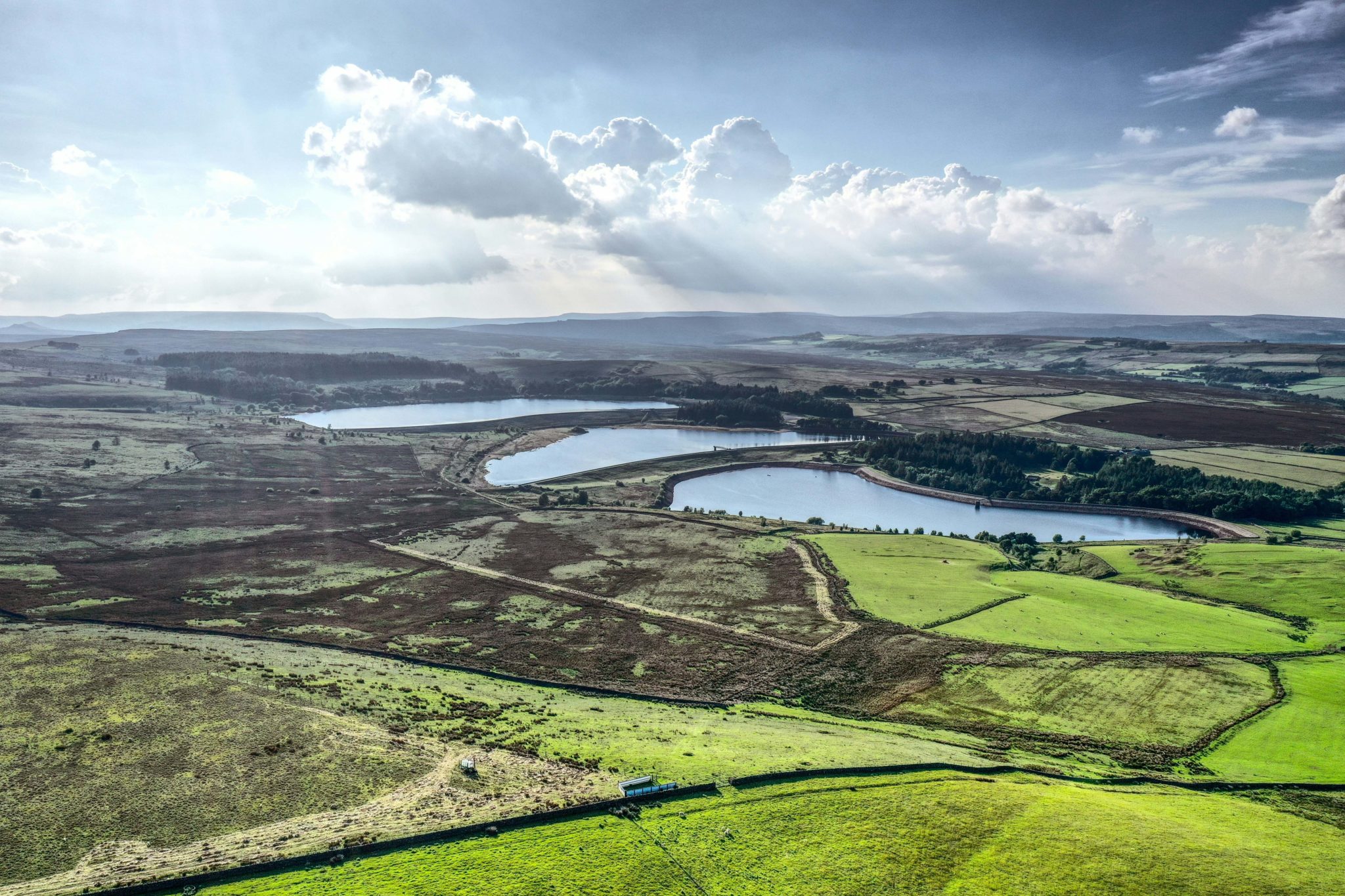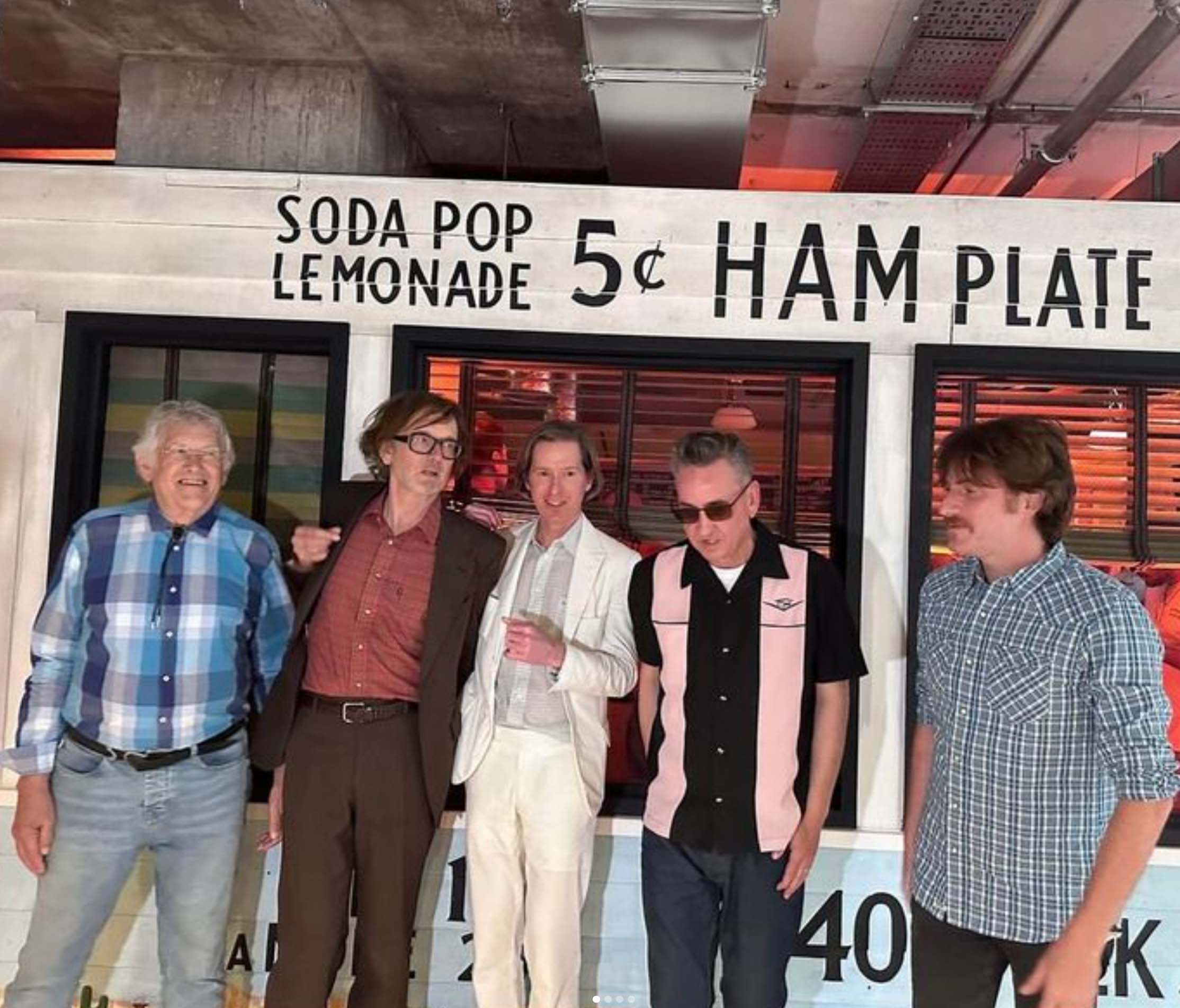- Music
- 27 Jun 24

Sheffield cult hero Richard Hawley discusses his latest album, the characteristically sublime In This City They Call You Love.
Richard Hawley is on one hell of a streak. The musical based on his songs, Standing At The Sky’s Edge, won two gongs at the prestigious 2023 Olivier Awards, and – following sell-out runs at Sheffield’s Crucible Theatre and London’s National Theatre – it has begun a six-month run at London’s West End Gillian Lynne Theatre.
His song, ‘Dear Alien (Who Art In Heaven)’, co-written with Jarvis Cocker and Wes Anderson for Anderson’s film, Asteroid City, was recently shortlisted for ‘Best Original Song’ at this year’s Oscars. Last year, meanwhile, Now Then: The Very Best Of Richard Hawley was his fourth UK Top Ten album. And best of all, his ninth solo long-player, In This City They Call You Love, has just dropped. Where to begin? Why not by quoting the opening couplet of his new album to the man himself?
“Love swims in the sun, drowned down by the rain / One to care for the beyond us is only for the truest flames.” Pure poetry.
“I’m no poet,” Richard plainly states. “I’ve never claimed to be one. I just write songs. The thing about songwriting that I’ve learned over all these years, is you have to be relaxed for them to arrive. To really write something beautiful, you hit the bullseye without aiming for it. If you aim for the bullseye, you often miss. Sometimes you don’t even hit the fucking dartboard!
“I’m 57 now, melodies have been floating around in my head since I was a child. And like I’ve said a couple of times before, I don’t call it a talent, it’s more of a fucking mental illness! This morning, eight o’clock, I was out the door with the dogs. I finished off one old song in my head and started another, and I don’t even how know the fuck I did it. It’s a bit like when you mentioned four lines in a song, you got me off on a tangent, which is probably good – means you have to do fuck all!”
Advertisement

Hawley is Sheffield. Sheffield is Hawley. That is something that was set in steel when his hit musical was awarded the coveted Made in Sheffield maker’s mark.
“The skeletal basis of my songs is the framework of the city that I live in,” Richard explains. “Obviously, I’ve reflected Sheffield in titles of songs and occasional lines here and there. I don’t know what it’s like to live in Kilkenny, Moscow or Azerbaijan, Australia or Spain. I’ve got no idea. I’ve been to a lot of those places, but I know exactly what it’s like for me to live in the city I was born and raised in. So for the songs to have any authenticity and truth, they have to be in this city. I hold on to the sense of otherness of Sheffield like a drowning man does a fucking plank.”
Lowedges, Coles Corner, Lady’s Bridge, Truelove’s Gutter, Sky’s Edge itself – Richard has documented so much of his beloved Sheffield. The track ‘People’ from In This City They Call You Love captures the Steel City so perfectly, and by little more than mentioning its rivers and some topography. It’s a marvel of a track.
“You don’t need to fill in all the blanks,” nods Richard. “That is another thing I learned a long time ago. On a Sunday, especially in the summer, when granddad and dad would come home from the allotment, my grandmother and my great aunts, in a council house in Sheffield, would make paper doilies to put on the plates. Most households about that period of time had those plates with the willow pattern behind them.
“When I was a kid, I used to like looking at these paper doilies, and you’d see a little bit of a picture behind. And I’d try and imagine what the full picture would be. And I actually think that’s some kind of allegory for songwriting. Because if you’re skilful at it, you don’t need to explain the full picture, because the listener will see it. All I’m good at is just making a paper doily.”
Perhaps. But if so, it’s only after a ton of grunt work. Before his successful solo career, Richard played guitar in two Sheffield bands – Treebound Story and Longpigs. He was also in Pulp. On receiving the Mercury Prize for their debut album Whatever People Say I Am, That’s What I Am Not, Alex Turner of Arctic Monkeys spotlighted his fellow nominee saying, “Someone call 999. Richard Hawley’s been robbed.” Richard has certainly earned the right to boss Sheffield. Indeed, when he speaks of it, it makes you want to take a trip there.
Advertisement
“Sheffield is an incredibly green city,” he says. “It’s got 4.7 million trees. There’s nearly 500 parks, municipal spaces and public access to woodland. I’m looking out my window at apple and cherry blossoms, this beautiful outcrop of colour, these shocking pinks and reds that are incredibly beautiful and so fleeting – the first proper storm that comes, it’s gone. I love that.
“Because if you go to other cities, particularly in the north of England, you have to make an appointment to see nature. You have to get on a bus or drive to somewhere, and in Sheffield, it’s the opposite. My heart would break if I was forced to leave here. My family are mentioned in the Domesday Book, in this area, so we’re pretty boring fuckers, we don’t go anywhere!”
His music credentials ain’t too shoddy neither.
“Granddad Albert was a soldier,” Richard relates. “He was conscripted during the war. He went all the way from Dunkirk, right through to Northern Italy and into Berlin at the end. He came out pretty damaged and music was the thing that saved him. He couldn’t bear loud noises, so he couldn’t go back to the steelworks. He was like a God to me. He taught me piano, how to play chess and cards, all these wonderful things.
“And these gifts, I use them every day of my life. I vividly remember the smell of his tobacco smoke, the ticking of the clock, and the slow patience of playing a game of chess with him as a kid. He was a great guy, a steel worker, a soldier and a musician – a brilliant violinist and pianist – who played the music halls.”

Almost in passing, Richard informs me that his father supported The Beatles at the Manchester BBC in ’62.
“Dad played in a group called The Whirlwind,” he recalls. “They did hits of the day – Billy Fury, The Shadows, stuff like that. And dad kind of hated it, because he was really into blues and rock and roll. The leather jacket that I’m wearing on the front cover of my ‘best of’ compilation is the jacket dad wore supporting The Beatles. But he also wore it playing with Howlin’ Wolf, Sonny Boy Williamson and Muddy Waters, because they backed all those guys when they swung through Sheffield.”
Advertisement
Richard was not your ordinary schoolkid, not musically anyway, listening as he did to the likes of Carl Perkins, Blind Willie Nelson, Willie Dixon and Blind Boy Fuller. He was assisted in the endeavour by his father’s excellent record collection, and it’s a heritage that has stood to him. It has made him difficult to pigeonhole, as he crafts an incredible song-book that is as rich as it is diverse.
In This City They Call You Love channels a fair whack of Link Wray and Duane Eddy – Richard co-produced Eddy’s final album Road Trip in 2011. But you know when the late, immensely great Norma Waterson told Richard that his catalogue was a form of folk, she hit the bullseye too.
I’m wondering, given his affinity with Ireland, whether there’s any Irish in him.
“Not to my knowledge,” he laughs. “As I said before, we’re English through and through. Well, I don’t call myself an Englishman, I’m from Sheffield, there’s a fucking difference. I’m from the Deep South, Will, Deep South Yorkshire.”










